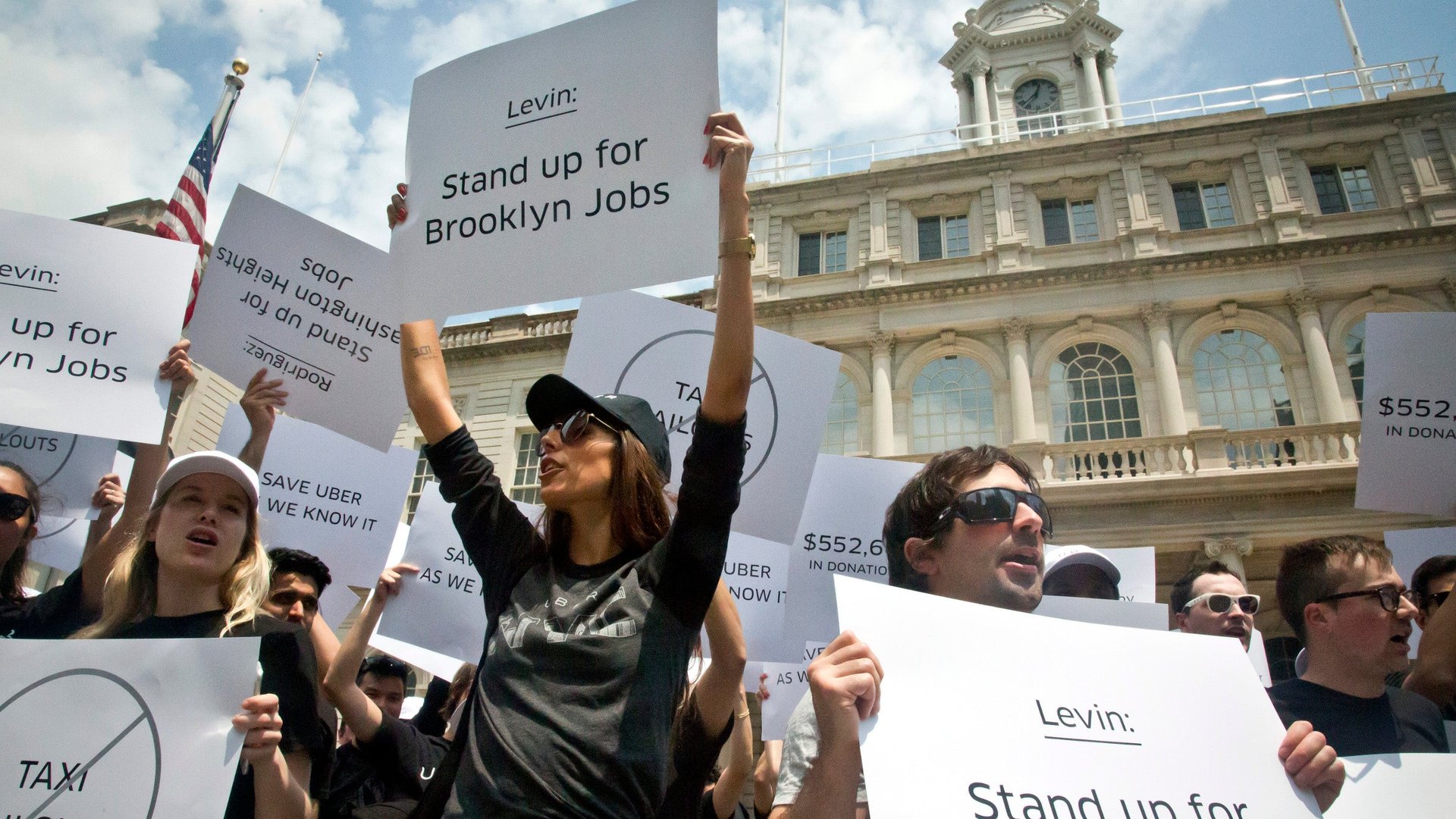Seven questions for the strategist who orchestrates Uber’s political victories
Uber, the car service platform, surprised New Yorkers when it convinced Mayor Bill de Blasio to drop a proposed cap on the company’s growth in the city, the largest US car service market. Bradley Tusk, one of the company’s first political advisers, is credited with orchestrating the victory.


Uber, the car service platform, surprised New Yorkers when it convinced Mayor Bill de Blasio to drop a proposed cap on the company’s growth in the city, the largest US car service market. Bradley Tusk, one of the company’s first political advisers, is credited with orchestrating the victory.
Tusk has been the deputy governor of the State of Illinois and ran former New York Mayor Michael Bloomberg’s reelection campaign. He is now starting a new firm to work with other start-ups dealing with government rules.
He spoke with Quartz from San Francisco.
Were you surprised when De Blasio backed down?
Yes and no. I think they are right when they said they had the votes, although I don’t know that it would have held up in court.
More importantly, he misunderstood what Uber is. He just saw the valuation and the black cars driving around Manhattan as a fancy thing for rich people—’Whenever Bill DeBlasio goes up against rich people, he wins.’
But Uber has very, very broad support. [By protecting the taxi industry,] he wasn’t just taking care of any old special interest, it’s one that people don’t like, one that his base doesn’t like.
You worked for the former mayor, Mike Bloomberg. How would he have handled the congestion problem?
Mike backed a very visible plan on congestion, which was to toll the bridges. If you’re trying to do something meaningful on the issue, that’s what you would do. De Blasio doesn’t care about congestion; he thought it would be a good-enough excuse.
How did you get involved with Uber?
I got a call one day in 2011—this guy with a small transportation start-up. The guy turned out to be Travis [Kalanick, Uber CEO], lucky for me. We started working together and he said, “your fees are kind of high, will you take stock?” That worked out even better. At the time, it was a small company, no government relations. We were kind of it.
Uber was criticized as being very confrontational with regulators in its early days.
They really had to be confrontational, as someone who had a front-row seat. At the time, taxi was so powerful and so entrenched, there is no way Uber could have operated.
Do you think that Uber is trying to play nicer now?
One of the reasons why you’ve seen a change in Uber is they’ve been around for a while. People understand that consumers really like it. There is less of a need to have confrontations.
Is that a model that can be replicated?
One of the reasons that worked for Uber: They had such a good product, and were replacing a bad product. Ultimately, the demand from voters would be significant.
What’s your product and what are you replacing? “We’re trying to do what Uber did”—that’s not always true. Not everyone’s customers are going to rally to their defense.
What industries do you think are ripe for this kind of disruption?
Transportation, obviously. We think cryptocurrency is really interesting; we think real estate is really interesting; we like healthcare; we think the insurance model is ripe to be disrupted. Gaming, gambling—we’re supposed to call it gaming, I guess.
That’s how this all came together. I spent two years at Lehman going from state capital to state capital trying to convince states to privatize their lottery. Not a particularly fun two years, but it gave me a very good sense of state government nationally….that’s where the majority of regulation occurs. That’s what led me to start the consulting firm.
This interview has been edited.